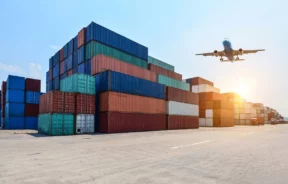Araqchi: Recent Events in Syria Must Not Lead to the Collapse of National Governance in the Country
WANA (Dec 14) – The Iranian Deputy Foreign Minister stated: “The solution to Syria’s current crisis lies in preserving unity, fostering coexistence among its citizens, and ensuring free elections to determine the country’s future by all its people. This is the way to uphold Syria’s independence, dignity, and the nation’s flag.”
Seyyed Abbas Araqchi wrote in a note published in the Lebanese newspaper Al-Akhbar under the title “Syria in the Difficult Test of Transition”:
“There is no doubt that, given the circumstances facing the Levant and Palestine, the Islamic world is deeply concerned about the future of the West Asian region. The people of this geography, who for centuries played a key role in determining the political destiny of the Islamic world, have for decades borne significant losses as a result of the transference of the European Judeo-Christian crisis after World War II, due to the disregard for their sovereign rights.”
“During all my years of service as a diplomat, the ‘Palestinian crisis’ was always a central topic of discussion. I was constantly met with the argument by my European colleagues that ‘the German people feel ashamed and responsible for the atrocities committed by the Nazi government against the Jews.’ This is a correct statement, as the brutal behavior that dominated that dark period of European history inflicted deep wounds on the people of that continent and many festering scars on the bodies of other countries worldwide. My homeland, Iran, despite being neutral, was occupied, and my people suffered irreparable losses due to the effects of that great war and occupation.”
“When counterparts spoke of their shame and acknowledgment of responsibility in this regard, I was prompted to ask a question that is directly linked to today’s circumstances: Who is responsible for the shame and disgrace of Israel’s crimes? The regime that has occupied Palestinian lands, consistently violated international resolutions, infringed upon the territorial integrity and sovereignty of neighboring countries, imposed severe restrictions on the people, blocked humanitarian aid, and carried out aerial bombings on civilians. The recent massacre at the Al-Aqsa Martyrs Hospital on October 14, 2024, a horrifying example of Israel’s modern iteration of Nazi genocide in the ‘Gaza camp,’ sufficiently illustrates this shame and disgrace.”
“Who is responsible for Israel’s aggression against the territory of a country grappling with the harsh conditions of the fall of one government and the birth of another? Expressions of regret and concern are among the simplest and sometimes most meaningless words used in the discourse of many ‘responsible countries in shaping the destiny of the people of West Asia.’”
“For over seventy-five years, ‘resistance’ has been the only viable strategy for the people of this region against the blatant aggressions of the Zionist regime and the overt support provided to it by irresponsible nations. Resistance was formed in the minds of fathers and mothers and implemented by the strong arms of their children in various ways. It has created a culture exemplified by Syrian poet Nizar Qabbani’s ‘Children of Stones’:”
“Oh students of Gaza,
Teach us,
Some of what you have,
For we have forgotten.
Teach us!”
“It is the same poet who depicted the solidarity between Shia and Sunni communities and the formation of a united front among the people of Syria, Iraq, Lebanon, Iran, and other regional countries. This solidarity became a lifesaving model for the Islamic world during ISIS’s aggression.”
“I named you ‘The South,’
O wearer of Hussein’s cloak,
With the sun of Karbala shining upon you.
O tree that thrives on sacrifice,
O earth’s rebellion meeting the rebellion of the heavens,
O body from whose soil sprout prophets and wheat,
I named you ‘The South.’
O sad moon rising nightly from Fatima’s eyes,
O skilled fishing boats of resistance,
O frog of the river
Reciting the chapter of resistance through the night,
I named you
‘The South.’”
“This rhetoric symbolizes the steadfastness and resistance of the people of the Levant against the Zionist regime and their solidarity with Hezbollah, which has dramatically increased since the 33-day war. Furthermore, these sentiments are not imported or tools employed by the Islamic Republic of Iran but are inherently rooted in the region.”












